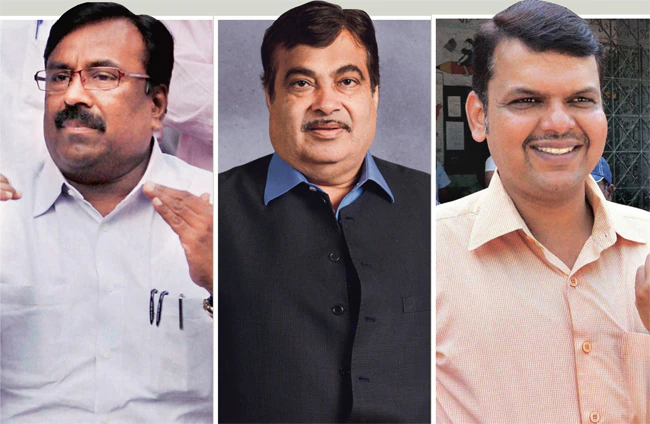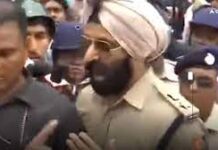
What are the Implications of BJP’s current Stand on Separate Vidarbha?

There is one old viral video that crops up on the social media feed every now and then, which shows Devendra Fadnavis the Deputy Chief Minister and Sudhir Mungantiwar the Minister for Culture, Forests and Fisheries making powerful speeches demanding Separate Vidarbha State. When the video was made both, sometime before the elections of 2014, these strong ministers from Vidarbha were in the opposition. There is one question that is always asked – where is BJP on the Vidarbha Statehood Issue today? Why are Devendra Phadnavis and Sudhir Mungantiwar silent in the State Assembly? And why is the other voice in favour of Vidarbha- Nitin Gadkari – silent in the Parliament? Why is the BJP which is in power in the State as well as in the Centre and therefore best positioned to form a new State not lifting its finger? Those who oppose the BJP call it yet another case of ‘jumla’?
Vidarbha Gazette talked to Sudhirbhau Mungantiwar, a proponent of Vidarbha Rajya on the current stand of the party.
Q. Both you and Devendraji were very vocal in the dmand for separate Vidarbha. Now BJP is in power both in Centre and State. Why are you not pursuing the issue now?
A. The BJP passed the resolution in Bhuvaneshwar supporting the formation of Vidarbha so there is no going back on that. But the party wants to come to full majority in Maharashtra before forming separate Vidarbha. In 2000 BJP had announced three new States, Chhattisgarh, Uttarakhand or Jharkhand, and at that time BJP had ensured that resolutions were passed in the state assemblies of Madhya Pradesh, Uttar Pradesh and Bihar before the Centre took the final decision.
Q. But why is a resolution important at all? After all there is no Constitutional requirement for such a resolution to be passed?
A. The three States i.e. Chhattisgarh, Uttarakhand and Jharkhand were formed within one month i.e. in the month of November 2000. There was no problem during the entire process which was completed under the leadership of Prime Minister Atal Bihari Vajpayee. At that time Atal Bihari Vajpayee said in his speech that the demand for separate State should emerge from the State. The Resolution in State Assembly is required for Governance through Consensus. A new state should not be seen as an imposition from the Centre.
Q. Are you trying to say that BJP legislators from Western Maharashtra will support the demand for Separate Vidarbha State and support such a resolution in the Assembly?
A. Yes, for sure. If we have full majority, then BJP MLAs from Western Maharashtra will support the resolution for Separate Vidarbha State. Today BJP is not in full majority and although I had introduced the resolution, I had to withdraw it because I did not want it to be defeated on the Floor of the House.
Two things that emerge from the answers given by Sudhirbhau Mungantiwar
Firstly, BJP may not revive the Statehood issue without a full majority in Maharashtra and the Centre, so that they can take full credit for the formation of the new state and benefit politically from such a move. This is certainly a lesson learned from the formation of Telengana. Congress which ruled in the centre when Telengana was formed, lost miserably in the State elections that followed and TRS took all the political credit.
Secondly, in a most ironical manner, the fate of Vidarbha would depend on what stance the MLAs of rest of Maharashtra take on the issue if at any point the matter of Separate Statehood does come up for passing a Resolution in State Assembly.


